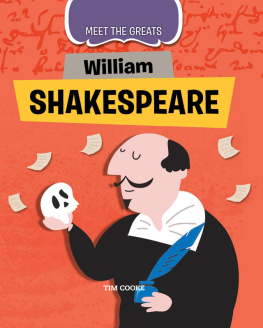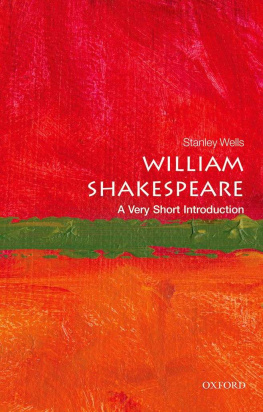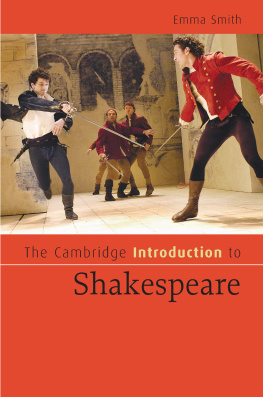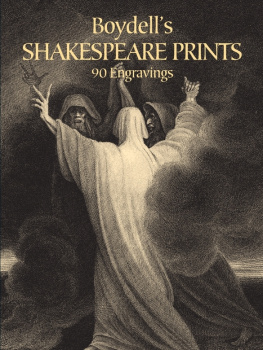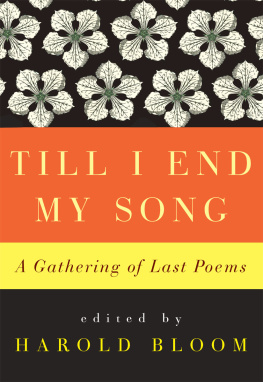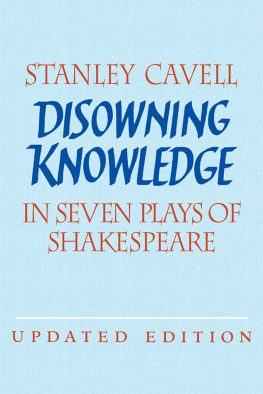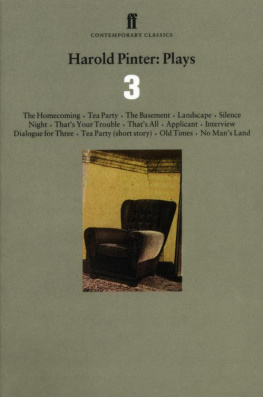Harold C. Goddard - The Meaning of Shakespeare
Here you can read online Harold C. Goddard - The Meaning of Shakespeare full text of the book (entire story) in english for free. Download pdf and epub, get meaning, cover and reviews about this ebook. year: 1951, publisher: University Of Chicago Press, genre: Science. Description of the work, (preface) as well as reviews are available. Best literature library LitArk.com created for fans of good reading and offers a wide selection of genres:
Romance novel
Science fiction
Adventure
Detective
Science
History
Home and family
Prose
Art
Politics
Computer
Non-fiction
Religion
Business
Children
Humor
Choose a favorite category and find really read worthwhile books. Enjoy immersion in the world of imagination, feel the emotions of the characters or learn something new for yourself, make an fascinating discovery.

- Book:The Meaning of Shakespeare
- Author:
- Publisher:University Of Chicago Press
- Genre:
- Year:1951
- Rating:5 / 5
- Favourites:Add to favourites
- Your mark:
- 100
- 1
- 2
- 3
- 4
- 5
The Meaning of Shakespeare: summary, description and annotation
We offer to read an annotation, description, summary or preface (depends on what the author of the book "The Meaning of Shakespeare" wrote himself). If you haven't found the necessary information about the book — write in the comments, we will try to find it.
The Meaning of Shakespeare — read online for free the complete book (whole text) full work
Below is the text of the book, divided by pages. System saving the place of the last page read, allows you to conveniently read the book "The Meaning of Shakespeare" online for free, without having to search again every time where you left off. Put a bookmark, and you can go to the page where you finished reading at any time.
Font size:
Interval:
Bookmark:
The Meaning of
SHAKESPEARE
The Meaning of
SHAKESPEARE
Volume I
By
HAROLD C. GODDARD

Phoenix Books
THE UNIVERSITY OF CHICAGO PRESS
chicago & london
The University of Chicago Press, Chicago 60637
The University of Chicago Press, Ltd., London
by The University of Chicago. All rights reserved
Published 1951. Paperback edition 1960
Printed in the United States of America
00 99 98 15 16
ISBN: 0-226-30041-2
LCN: 51-2288
The paper used in this publication meets the minimum requirements of the American National Standard for Information SciencesPermanence of Paper for Printed Library Materials, ANSI Z39.48-1984.
Sweet, sweet, sweet poison for the age's tooth.
king john
When such a spacious mirror's set before him
He needs must see himself.
antony and cleopatra
The secrets of nature
Have not more gift in taciturnity.
troilus and cressida
Is there any cause in nature that makes these hard
hearts?
king lear
How with this rage shall beauty hold a plea
Whose action is no stronger than a flower?
sonnet 65
A Word to the Reader
How many a book on Shakespeare has been prefaced with a sort of shamefaced apology for "another book on Shakespeare." Anyone who feels that way should never have produced such a book. For my part, I believe we are nearer the beginning than the end of our understanding of Shakespeare's genius. Poetry forever makes itself over for each generation, and I cannot conceive a time that will not be able to ask with profit what Shakespeare has to say specifically to it. Twice within three decades our own time has called on its younger generation to avenge a wrong with the making of which it had nothing to do. For whom, then, if not for us, was Hamlet written? To whom, if not to us, did King Lear direct the question, "Is there any cause in nature that makes these hard hearts?" and of what age if not the atomic did Albany make his prediction:
It will come,
Humanity must perforce prey on itself,
Like monsters of the deep.
Ours is a time that would have sent the Greeks to their oracles. We fail at our peril to consult our own.
Nor do I apologize for the length of this book. Maurice Morgann, in the eighteenth century, wrote one of the best books on Shakespeare ever published. When it was done, he was a bit appalled by its length. "The Book is perhaps, as it stands, too bulky for the subject," he remarked, having his quiet joke (it was on Falstaff), "but if the Reader knew how many pressing considerations, as it grew into size, the Author resisted, which yet seemed intitled to be heard, he would the more readily excuse him." Though the evidence may seem against me, I have exercised a like restraint. This book could easily have been several times as long. It is far longer than Morgann's. But, after all, he was writing of one character; I am compelled to bring in scores.
"Shakespeare deserves to be considered in detail;a task hitherto unattempted." He does, and Morgann, following his own injunction, was about the first so to consider him. Books by the shelf-full have been written on Shakespeare since the publication of An Essay on the Dramatic Charac ter of Sir John Falstaff. Many of them are crowded with specific references and quotations. Yet it is surprising how few of them have considered the poet "in detail" in Morgann's sense, how true his "a task hitherto unattempted" still remains. Any book that considers Shakespeare in detail is bound to be a long book.
And Shakespeare deserves to be considered as a whole. I should like to add that dictum to the other. I do not mean merely that all of Shakespeare deserves to be considered. That goes without saying. I mean that his plays and poems deserve to be considered integrally, as chapters, so to speak, of a single work. And there again I do not have in mind just finding passages in Henry V, for example, that illuminate Julius Caesar, or vice versa. That practice, while valuable, has been long and widely indulged in. I mean treating Shakespeare's works as an organism. No one would dream of pretending to understand the fifth act of Antony and Cleopatra without taking the other four into account. If, as I believe, Shakespeare is one, it will be just as useless to try to understand Antony and Cleopatra as a whole without catching its relation to, say, Romeo and Juliet, Troilus and Cressida, Othello, and King Lear. Not to imply that Shakespeare planned or was fully conscious of this deeper unity. The imagination does not work that way. How it does work, Sir Thomas Browne once made clear when he exclaimed: "Now for my life, it is a miracle of thirty years, which to relate were not a History, but a piece of Poetry, and would sound to common ears like a Fable." If we may judge by his works, Shakespeare's life had a like integrity. His inner life at any rate. It must itself have been a work of art. (All this I treat in my chapter, "The Integrity of Shakespeare.")
But to consider Shakespeare as a whole and at the same time to consider him in detail is, to that extent at least, to consider him as a poet for it is the poet who actually achieves that union of the many and the one about which philosophers have dreamed and metaphysicians argued. This book is written out of a conviction that Shakespeare is primarily a poet.
That Shakespeare is primarily a poet ought to be so obvious that even to put the thought in words would be banal. That it is not only not banal but is the thing most necessary to emphasize about him at the present time is a comment on the long ascendency of the historical school of criticism in Shakespeare study. In stressing what Shakespeare meant to the Elizabethan age the historical critics have helped us forget what he might mean to ours. Like the materialists of the nineteenth century, in focusing attention on where things come from they tend to forget where they are going. They tend to forget that poetry means creation, and creation is something that still goes on.
And then there are the theatrical criticsnot the theatrical reviewers but the critics whose central interest is dramaturgy. They too have obscured the greater Shakespeare. It is they who are forever insisting that Shakespeare was primarily a playwright, always concerned first of all with the theater, with dramatic construction, stagecraft, acting, scenic effect, and so on. That in his earlier career the theater did nearly "get" him, Shakespeare himself tells us in one of the Sonnets. But he plainly implies what his later works provethat he escaped that fate. Because he mastered the theater, he saw through it.
And so the time seems to have come for a return to Shakespeare the poet, for a consideration of his works not merely as poetry in the romantic meaning of that term but as works of the Imagination in the widest and deepest sense: imagination, that language in which all languages are written, that language within which the poet conceals himself as utterly from the crowd and from seekers after pleasure and power as he reveals himself to those rarer individuals who can enter his spirit. The purpose of the poet in this sense is often in direct contradiction with that of the playwright. It may even lead him in the interest of truth to distill
Sweet, sweet, sweet poison for the age's tooth,
a line which, for our present understanding of him, may be the most important one in all Shakespeare's works. "Behold, I send you forth as sheep in the midst of wolves: be ye therefore wise as serpents, and harmless as doves," said Jesus to his disciples. No one ever followed that advice more effectively than William Shakespeare. Here is a neglected aspect of his works. The world has long since recognized the dove. It has scarcely begun to detect the serpent. (This line of thought I develop in my introductory chapter, "Cadwal and Polydore," and more especially in the chapter, "The Poet-Playwright.")
Font size:
Interval:
Bookmark:
Similar books «The Meaning of Shakespeare»
Look at similar books to The Meaning of Shakespeare. We have selected literature similar in name and meaning in the hope of providing readers with more options to find new, interesting, not yet read works.
Discussion, reviews of the book The Meaning of Shakespeare and just readers' own opinions. Leave your comments, write what you think about the work, its meaning or the main characters. Specify what exactly you liked and what you didn't like, and why you think so.

